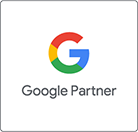Sporting Events Rule Social Media, and Brands Fight to Win the Conversation
In the aftermath of Germany’s 1-0 victory over Argentina in the 2014 World Cup Final, 88 million impassioned people took to their phones, tablets, and laptops, making a total of 280 million posts, comments, and Likes on Facebook.
According to Mashable.com, the 2014 World Cup is the “most talked about sporting event in the history of the platform.” The World Cup not only owned Facebook, but also dominated Twitter, generating nearly 4.7 million tweets. FIFA, the ruling body over this international soccer/football event, even stated that more than one billion people engaged with World Cup content through its website, social media accounts, and mobile app.
But the World Cup is not the first sporting event to produce such a tremendous amount of brand chatter. Just earlier this year, Twitter reported a record 24.9 million tweets from the Superbowl. This event produced 8 million more tweets than the 2013 Superbowl. (Now, if you’re trying to remember who won the 2014 game, it was the Seattle Seahawks; they walloped the Denver Broncos in an amazing 43-8 win. I bet you remember the game now.)
Of course, you don’t have to be a social wizard to know that social media has grown fast and furious in just the past few years; people are now turning to their phones or devices more and more to share information or to be entertained. Who doesn’t like to give their unsolicited opinion anyway?
Even the traditional advertisers who are steadfast to TV have realized that ignoring social media is like burying one’s head in the sand (in this case, their business). In fact 57% of the brands that ran TV ads during the Super Bowl featured social hashtags. Advertisers Coca Cola, Ford, and Doritos had more mentions on social media than any other advertiser or sponsor during the 2014 SuperBowl.
Of course “social media mentions” do not always mean that the buzz is positive or that the buzz translates to immediate sales. What is clear is that social media marketing is a winner at driving website traffic and getting customers engaged in a product or service.
No referee needed here.
Interesting Findings on Sports and Social Media:
- Nearly twice as many respondents use Facebook compared to Twitter, at 73% to 37%. But on game day, they check Twitter about 1.5 times as often as they do Facebook.
- Google+ and YouTube are on the rise among fans. When fans responded to a question about which platforms they use to “disseminate and acquire sports information,” those two platforms showed the most year-over-year growth, at 94% and 35%, respectively.
- Seven out of 10 sports fans who Like or follow a brand online say they’re open to sharing brand content, buying goods, or engaging with social posts.


.png)
